Nutrition in Endometriosis
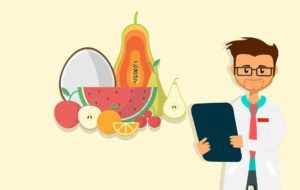
A strategic dietary approach in endometriosis can significantly contribute to easing symptoms, notably pain.[1] Endometriosis entails the proliferation of cells that bear resemblance to those in the endometrium, capable of manifesting across various bodily sites. Predominantly, these growths manifest within the abdomen, while more remote regions like the lungs, skeletal muscles, or even the brain are exceptionally rare occurrences.
Diet’s Role in Easing Endometriosis Discomfort
Surgery, hormone therapy, and multimodal pain management take center stage in treating endometriosis. However, noteworthy studies indicate that appropriate nutrition can contribute to enhanced well-being and milder symptoms in endometriosis cases.
Certain foods wield influence over hormone equilibrium and the immune system, thereby impacting the severity of endometriosis symptoms – entirely devoid of medication. Similar scientific investigations targeting chronic ailments like osteoarthritis have demonstrated how a tailored diet can suppress inflammatory processes, substantially ameliorating daily life and mitigating pain.
Endometriosis nutrition remains a field under constant exploration, with ongoing studies investigating diverse foods and their effects on the condition. Our dietary recommendations for endometriosis stem from the latest research findings. Regrettably, the volume of available studies remains restricted, emphasizing the necessity of a personalized approach to identify what suits you best.
A Balanced Mixed Diet: Your Path to Success
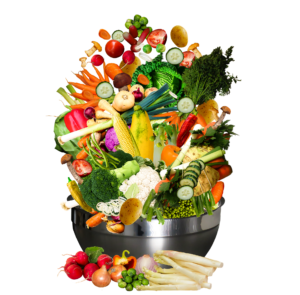
Embracing vegetables: a wise choice!
A well-balanced, nourishing diet stands as a crucial contributor to your overall wellness, transcending the realm of endometriosis. Across numerous health conditions, notably chronic ailments, adopting an appropriate diet proves pivotal in enhancing your overall quality of life. It not only alleviates symptoms such as pain but also serves as a shield against complications and secondary illnesses.
In essence, a healthy diet encompasses:
Reduced sugar intake and limited consumption of animal fats and red meat. Instead, prioritize ample servings of fresh fruits, vegetables, whole grains, and low-fat dairy products [10].
Influential Foods for Managing Endometriosis
A nutritious diet for endometriosis will not cure the condition, yet it can significantly enhance your ability to manage it! We aim to provide a concise guide on foods to favor or avoid. For in-depth insights into various foods or nutrients, simply follow the provided links. A summary table awaits you at the end for a quick reference.
Meat
Meat, while optional, can find a place within a balanced mixed diet. Nevertheless, it is crucial to note that animal proteins, in general, can trigger inflammatory processes within your body. Additionally, specific compounds in meat can exert adverse effects on your hormonal equilibrium [13]. Hence, it is advisable to limit your intake of meat, particularly red meat. Processed meats and ham contain histamine, a natural messenger, which can unfortunately influence the uterus and potentially amplify discomfort [8]. Minimizing your consumption of meat and sausages is recommended for optimal well-being.
Indeed, existing studies have even identified an elevated risk of endometriosis linked to high red meat consumption. To delve deeper into the relationship between meat consumption and endometriosis, explore more information here.
Fish
When it comes to fish, your plate’s contents matter. Fatty sea fish, in particular, boasts abundant omega-3 fatty acids. These compounds wield anti-inflammatory properties, contribute to favorable hormone production, and bolster your immune system.[6] Thus, including sea fish like herring or sardines in your diet regularly is recommended as they can help alleviate your endometriosis symptoms.
Omega-3 Fatty Acids
Omega-3 fatty acids are not only exclusive to fish, they also abound in plant-based fats. Indigenous oils like linseed oil, safflower oil, or canola oil exhibit a favorable and health-enhancing balance between omega-3 and omega-6 fatty acids. The greater the concentration of omega-3 and the lesser the presence of omega-6 fatty acids in your dietary choices, the more positive the impact on your endometriosis-related hormone equilibrium. [6]
Dairy Products: Animal-Derived
Milk-based products serve as rich reservoirs of calcium. This mineral plays a role in hormone creation [3], and research indicates that consistent consumption of low-fat dairy items like low-fat quark, cream cheese, or yogurt can contribute to endometriosis prevention. However, exercise caution with hard cheese, as it contains histamine – similar to cured meats – which can intensify discomfort.
Vegetables
Vegetables offer more than just overall health benefits; their impact extends to fortifying the immune system and diminishing inflammation, thanks to the antioxidative properties of vitamins A, C, and E, and trace elements like zinc and selenium within them. Additionally, the presence of secondary plant compounds in vegetables exerts a favorable influence on your hormonal system, among other aspects [2]. Hence, incorporating ample fresh vegetables into your diet can notably enhance your well-being.
The evidence regarding the impact of fruit on endometriosis remains inconclusive. While both fruits and vegetables harbor numerous health-enhancing vitamins, antioxidants, and secondary plant compounds, a solitary study indicated that elevated fruit consumption did not yield the anticipated health benefits, likely due to the presence of pesticides within them [11]. Consequently, it is prudent to consistently opt for fruits (and vegetables) from regulated organic cultivation. This choice ensures that the favorable effects of fruits remain uncompromised by pesticides, herbicides, fungicides, and other potentially detrimental chemicals.
Sunlight
Coincidentally, the sun also contributes to a well-rounded diet, as sunlight enables the body to synthesize vitamin D internally. Vitamin D wields anti-inflammatory properties, bolsters the immune system, and notably influences the female hormone balance, to the extent that it can tangibly alleviate menstrual discomfort [3].
Magnesium
Magnesium serves a dual purpose – it aids in relieving muscle cramps and holds the potential to alleviate endometriosis symptoms. Research indicates that women with higher dietary magnesium intake exhibit a reduced risk of endometriosis. Moreover, magnesium plays a favorable role in hormone equilibrium. Inadequacy of this mineral can disrupt menstrual cycles and lead to premature births, irrespective of endometriosis. [3] Wholesome sources of magnesium encompass whole grain products, nuts, beans, or even mineral water: perusing labels for comparison is indeed worthwhile.
Vitamins and Trace Elements
Indeed, scientific evidence underscores the beneficial impact of vitamins A, B12, C, D, folic acid, and E, alongside trace elements like selenium and zinc, plus minerals such as magnesium and calcium, in alleviating endometriosis-related symptoms. However, it is unwise to resort to vitamin tablets or fish oil capsules. The same applies to other dietary supplements. This is because maintaining a wholesome, balanced diet can aptly cater to your general health requirements, encompassing the needs of an endometriosis patient. It is crucial to note that dietary supplements carry the inherent risk of unhealthy excess, potentially causing more harm than good in some cases [16].
Gluten, Sugar, Alcohol and Fast Food: Unfavorable Choices for Endometriosis
Gluten
The available research on gluten and endometriosis remains limited, with only one study conducted [5]. Nonetheless, this study demonstrated that adopting a gluten-free diet can lead to an improvement in endometriosis symptoms. Consequently, considering the potential benefits, it might prove advantageous for you to exclude gluten from your dietary choices.
Sugar
It is common knowledge that sugar is not essential and is generally considered unhealthy. Ongoing research aims to establish any potential correlation between dietary sugar intake and its impact on endometriosis. Nevertheless, at its core, sugar (including sources like honey) does not hold a position within a health-conscious diet, irrespective of your specific concerns.
Fast Food and Trans Fatty Acids
Fast food often serves as a source of comfort, especially during times of discomfort. Regrettably, this solace frequently includes trans fatty acids that exacerbate inflammation and, consequently, exacerbate endometriosis-related discomfort [6]. A study has even indicated a 48% increased risk of endometriosis in women who frequently consume trans fatty acids through snacks, chips, cookies, French fries, heavily processed foods, margarine, and fatty baked goods. While indulging in fast food might be permissible in occasional instances, it is, unfortunately, counterproductive as a comfort option.
Alcohol
The relationship between alcohol consumption and the risk of developing endometriosis has been explored in several studies. While some studies have indicated an increased risk, three other studies found no clear connection between alcohol and endometriosis [4]. Consequently, further research is required for a conclusive assessment. Fundamentally, alcohol is considered a cytotoxin and should thus be consumed only in moderation, regardless of endometriosis considerations.
Caffeine
Caffeine garners favor among many affected women, yet it also raises suspicions of exacerbating endometriosis symptoms and potentially intensifying pain. Encouragingly, no study has definitively substantiated this correlation thus far. [10] However, individual reactions to caffeine can vary, and it might not be well-suited to your personal constitution. Should you find that your symptoms are exacerbated by coffee, tea (green or black), cola, or similar beverages, it could be worthwhile to explore caffeine-free alternatives.
What is the Impact of Obesity on Endometriosis?
Considerable evidence indicates that women who are overweight, indicated by a higher BMI (body mass index), tend to have a lower likelihood of developing endometriosis compared to those with lower BMIs. However, the current state of research should not be interpreted as a rationale to embrace obesity (BMI over 30), as the health risks associated with obesity far outweigh any potential positive effects on endometriosis.
Overview Table – Nutrition in Endometriosis: On Your Plate vs. Best Avoided
This overview table provides a quick reference to whether specific foods contribute positively or negatively to endometriosis.
However, it is important to note that the table does not address the broader categories of “healthy” or “unhealthy” foods. For instance, gluten is not an issue for generally healthy individuals, while alcohol and sugar have yet to show a clear correlation with endometriosis but are generally considered unnecessary and unhealthy components of any diet. Moreover, the current understanding is subject to change. It is crucial to recognize that dietary needs are highly individual!
Within the table, you will discover the effects of certain dietary components on endometriosis and chronic pain, serving as a guide for your considerations.
| positive | negative | neutral | |
|---|---|---|---|
| red meat | ❌ | ||
| Sea fish | ✅ | ||
| Omega-3 fatty acids | ✅ | ||
| Low fat milk products | ✅ | ||
| fresh bio vegetables | ✅ | ||
| fresh bio fruit | ✅ | ||
| Gluten | ❌ | ||
| Sugar | ⚪ | ||
| Caffeine | ⚪ | ||
| Fast Food | ❌ | ||
| Alcohol | ⚪ | ||
| vegan nutrition | ✅ |
Irritable Bowel Syndrome: A Frequent Companion to Endometriosis
Frequently, women grappling with endometriosis also contend with irritable bowel syndrome. In some cases, the diagnosis of irritable bowel syndrome precedes the revelation that endometriosis is an underlying factor. Notably, endometriosis can prompt alterations in the intestinal mucosa [7], potentially triggering digestive issues. For those dealing with both endometriosis and irritable bowel syndrome, dietary adjustments are crucial to alleviating discomfort. Adapting to a low-irritant diet, comprising three balanced meals a day, devoid of sugar, alcohol, and excessive spices, and with limited fat and fruit intake, while emphasizing plant-based “dairy” alternatives can prove beneficial in minimizing pain and discomfort.
Enhanced Eating, Enhanced Well-Being!
Your well-being harmonizes with your diet—opting for a healthier, well-balanced approach with endometriosis yields remarkable dividends. The apt diet not only holds potential in prevention but can profoundly alleviate chronic pain and other symptoms in individuals dealing with this condition. A study conducted in Austria [9] substantiated the remarkable impact of the “Mediterranean diet”, rich in fresh produce, vegetable fats, and fish, and low in red meat, animal fats, and sugar. The participants experienced a remarkable 50% reduction in pain, all without the use of medication and with added health perks. Is this not incentive enough to consider a dietary transformation?
Latest Blog Entries Regarding Nutrition and Endometriosis
References
By the way: You can find more tips on nutrition for endometriosis in our category “Endo-Facts” > “Nutrition“.
- Finding the Perfect Nutritionist: A Step-by-Step Guide - 5. October 2023
- Does Monk’s Pepper Help with Endometriosis? - 5. October 2023
- A Brief Overview of Dietary Fats - 29. September 2023

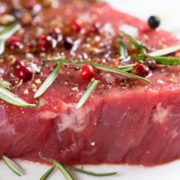
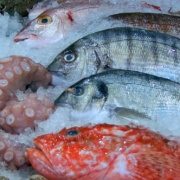
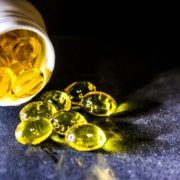
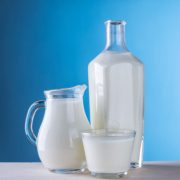
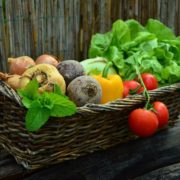


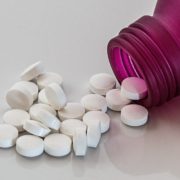
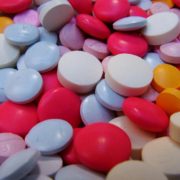


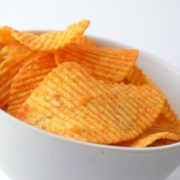



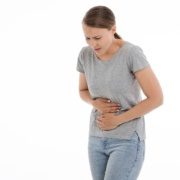
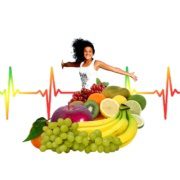




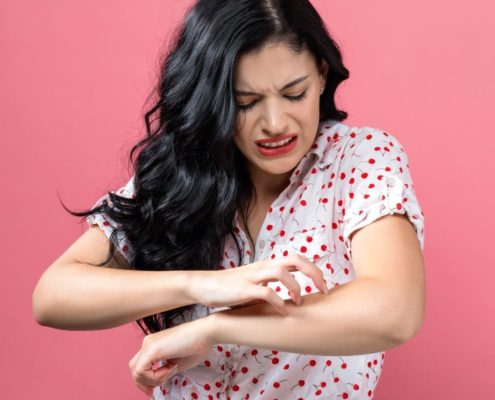
 Image by
Image by 